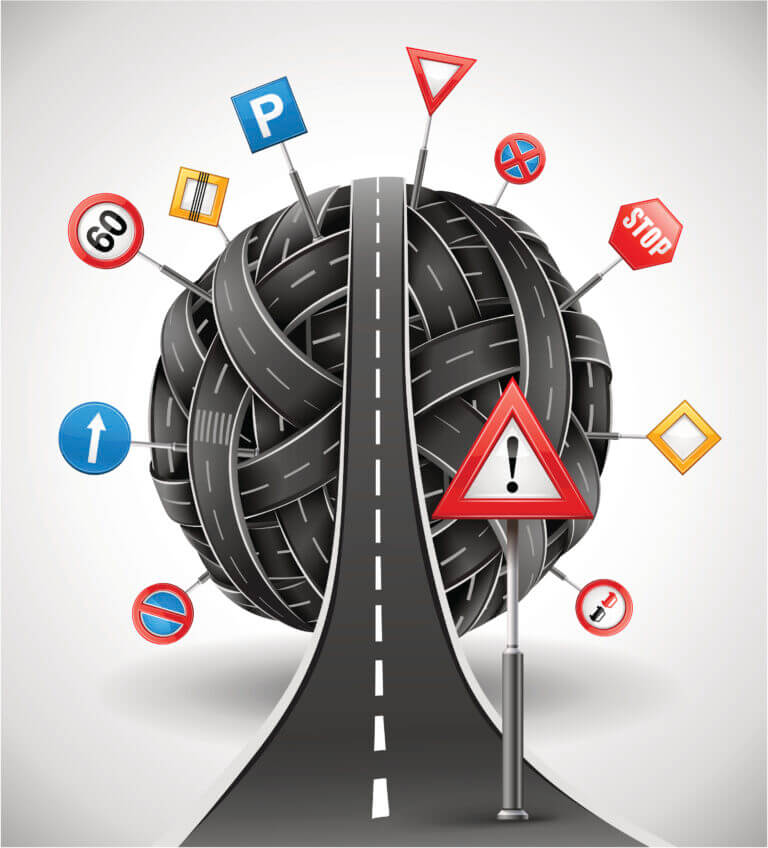The sting of car theft is a harsh reality in South Africa.
In a country boasting some of the most breathtaking landscapes and scenic drives on the continent, the potential for car theft can cast a dark shadow over the joys of owning a vehicle. The emotional toll of having your car stolen can be immense, leaving you feeling violated and vulnerable. However, the financial burden that often follows can be equally overwhelming. This blog delves into the often-complex world of stolen vehicle recovery (SVR) in South Africa, aiming to equip you with the knowledge and resources needed to navigate the road to recovery as smoothly as possible, even in the face of adversity.
Beyond the Initial Shock: Understanding Recovery Costs
While there’s no one-size-fits-all answer to the question of how much SVR will cost, several key factors can significantly influence your final bill. It’s essential to be aware of these factors so you can make informed decisions and potentially minimize the financial impact of a theft.
- The Recovery Method: This encompasses the entire process of locating and retrieving your stolen vehicle. Basic towing from a known location, where the thieves may have simply abandoned the vehicle after a short joyride, will differ significantly from complex operations involving specialized equipment, like helicopters or specialized tracking technology, needed to locate and retrieve your car in remote areas or situations where the thieves have actively hidden the vehicle. Additionally, complex situations might involve specialized teams trained in negotiating with hijackers, further impacting the cost.
- Storage Fees: This can be a significant and often overlooked cost associated with SVR. The longer your car sits impounded or awaits repairs, the higher the storage fees accrue. These fees can vary depending on the location and the facility holding your vehicle. Be sure to inquire about daily storage rates and any potential grace periods offered by the recovery company or impound lot.
- Damage Repair: Depending on the extent of the damage inflicted by the thieves, repairs can significantly inflate the bill. This could range from a quick buff and scratch removal to address minor cosmetic damage to a full-blown mechanical overhaul if the thieves have caused significant damage to the engine, drivetrain, or other critical components. Familiarizing yourself with the extent of the damage through a comprehensive inspection report is crucial for understanding the repair costs involved.
- Insurance Coverage: Your insurance policy acts as your financial compass in navigating the complexities of SVR. Understanding the details of your policy, specifically regarding comprehensive coverage, is crucial. Comprehensive coverage typically includes recovery costs, but with deductibles (the initial amount you are responsible for paying) and coverage limits (the maximum amount the insurer will pay) impacting your out-of-pocket expenses. It is highly recommended to thoroughly review your policy details and discuss them with your insurance provider to ensure you understand what is and is not covered, and to what extent.
A year ago, my colleague, Sarah, had her car stolen from a shopping mall parking lot in the bustling city of Johannesburg. The initial shock and fear were quickly followed by a sense of helplessness. Thankfully, the car was equipped with a pre-installed tracking device, which led to its recovery within 24 hours. However, the initial wave of relief was short-lived. The thieves had used the car for a joyride, leaving a trail of dents and scratches on the bodywork, broken windows, and a missing spare tire. While her insurance covered some repairs, she faced a significant additional cost for replacing the missing parts and specialized mechanics needed to address some of the damage caused by the joyride. This experience highlights the importance of understanding various recovery cost components and exploring ways to minimize them, such as opting for comprehensive insurance coverage and considering proactive security measures like tracking devices or alarms.
8 Burning Questions Answered:
- Is there a standard price list for stolen vehicle recovery? Unfortunately, no. As mentioned, various factors contribute to the final cost, creating a unique cost scenario for each theft. The complexity of the recovery operation, the extent of damage, storage fees, and your insurance coverage all play a role in determining the final bill.
- Can I negotiate recovery costs? Sometimes, yes! Depending on the specific situation and the recovery company involved, there might be room for negotiation. Discussing options with the recovery company and involving your insurance provider can potentially lead to adjustments in the final cost. It’s important to approach negotiations with respect and a willingness to compromise, while also advocating for yourself and your rights.
- How can I minimize recovery costs? There are several ways to minimize the financial impact of SVR. Choosing a reputable and transparent SVR company with clear pricing structures is a crucial first step. Additionally, consider proactive security measures like installing a tracking device or alarm system in your vehicle. This can not only deter potential theft but also expedite the recovery process, potentially reducing storage fees and minimizing the potential for damage if the vehicle is recovered quickly. Furthermore, maintaining clear communication with both the recovery company and your insurance provider throughout the process can help ensure you are aware of any additional costs and potential avenues for minimizing them.
Does my insurance always cover recovery costs? Not always. While comprehensive insurance typically includes coverage for stolen vehicle recovery, it’s essential to check your specific policy details carefully. This includes understanding the following:
- Deductible: This is the initial portion of the recovery cost that you, the policyholder, are responsible for paying before your insurance coverage kicks in. Deductibles can vary depending on your policy and your risk profile.
- Coverage Limits: This refers to the maximum amount your insurance company will pay towards the recovery costs. Understanding your coverage limits is crucial to avoid significant out-of-pocket expenses exceeding the limit.
- Specific exclusions: Certain types of recoveries or situations may be excluded from coverage under your policy. It’s essential to be aware of these exclusions to avoid any unexpected surprises.
What if my car is totalled? In the unfortunate event that your vehicle is deemed a total loss due to the extent of the damage, your insurance policy will dictate the payout process. Familiarize yourself with the terms of your “total loss coverage” within your policy. This typically involves the insurance company paying you the actual cash value of your vehicle at the time of the theft, minus your deductible. You may also have the option of purchasing gap insurance to cover the difference between the actual cash value and your outstanding loan balance on the vehicle.
What if my car is recovered internationally? International recoveries involving vehicles stolen in South Africa and recovered in neighbouring countries or beyond present a complex scenario with additional challenges. These challenges involve complex logistics, legal hurdles, and potentially significantly higher costs compared to domestic recoveries. Double-checking your insurance coverage regarding international recoveries and seeking professional guidance from the recovery company or legal counsel familiar with cross-border vehicle recovery is highly recommended.
Can I sue the thief for recovery costs? While legally possible, suing the thief for recovery costs is a complex and often lengthy legal battle with uncertain outcomes. The potential stress, time, and financial resources involved in pursuing legal action against the thief should be carefully considered before embarking on this path. It’s essential to weigh the potential benefits against the costs and emotional toll of a legal battle.
Who can help me navigate recovery costs? In the unfortunate event of your car being stolen, several resources can assist you in navigating the complexities of SVR and potentially minimizing the financial burden:
- Your Insurance Company: Your insurance provider is a valuable resource throughout the recovery process. They can guide you through the claims process, explain your coverage details, and assist in communication with the recovery company.
- South African Police Service (SAPS): Reporting the theft to the SAPS is crucial not only for initiating an official investigation but also for obtaining a case number, which is often required by both your insurance company and the recovery company.
- Consumer Protection Organizations: Consumer protection organizations can offer valuable advice and support regarding your rights and potential avenues for recourse in case of disputes related to recovery costs or service quality.
By understanding the complexities of SVR in South Africa, taking proactive steps to secure your vehicle, and being fully informed about your insurance coverage, you can be better prepared to navigate the road to recovery in the unfortunate event of your car being stolen. Remember, while car theft can be a traumatic experience, knowledge is power. By equipping yourself with the necessary information and resources, you can take control, minimize the stress and financial impact, and reclaim peace of mind on the open road.



